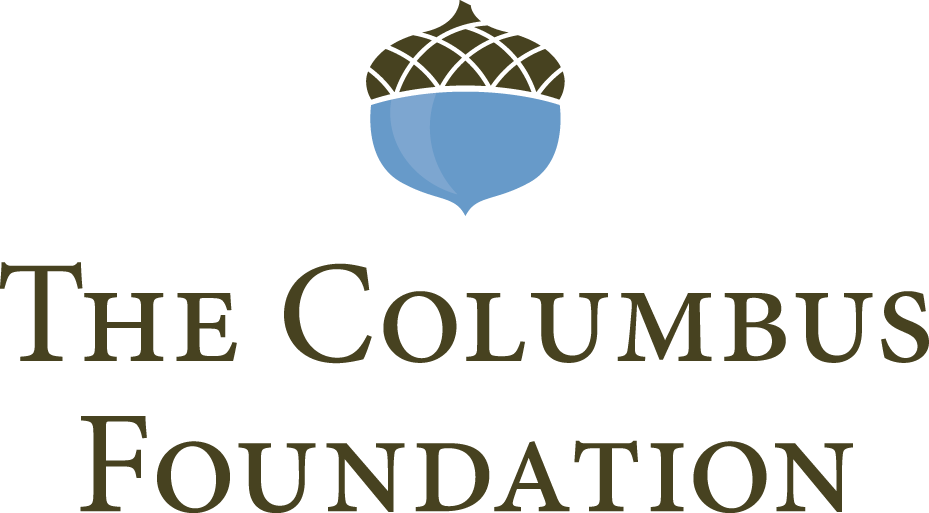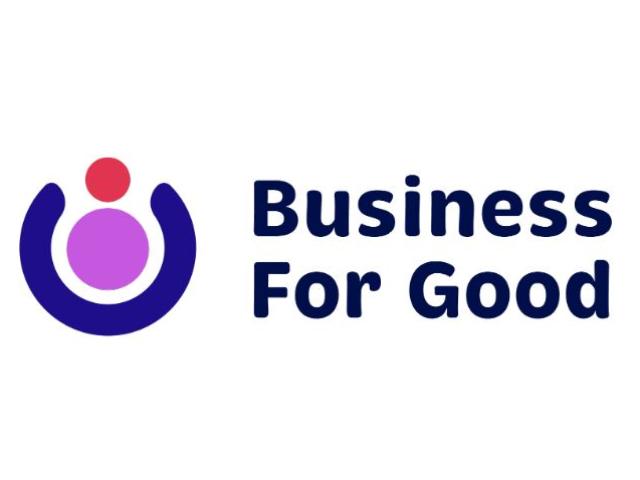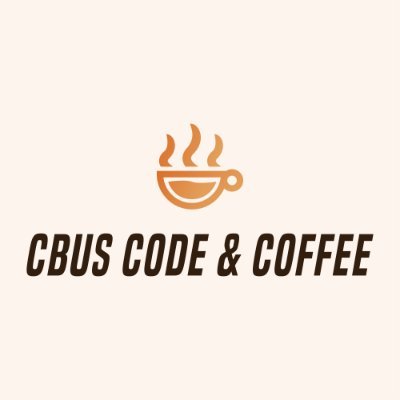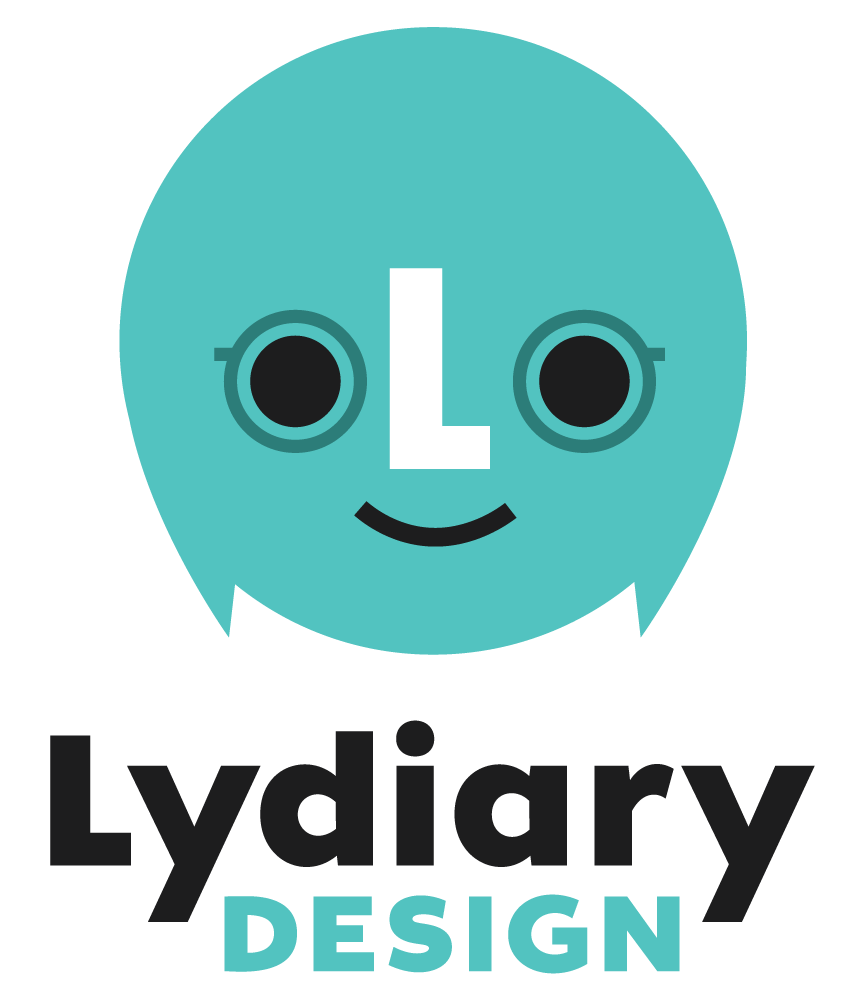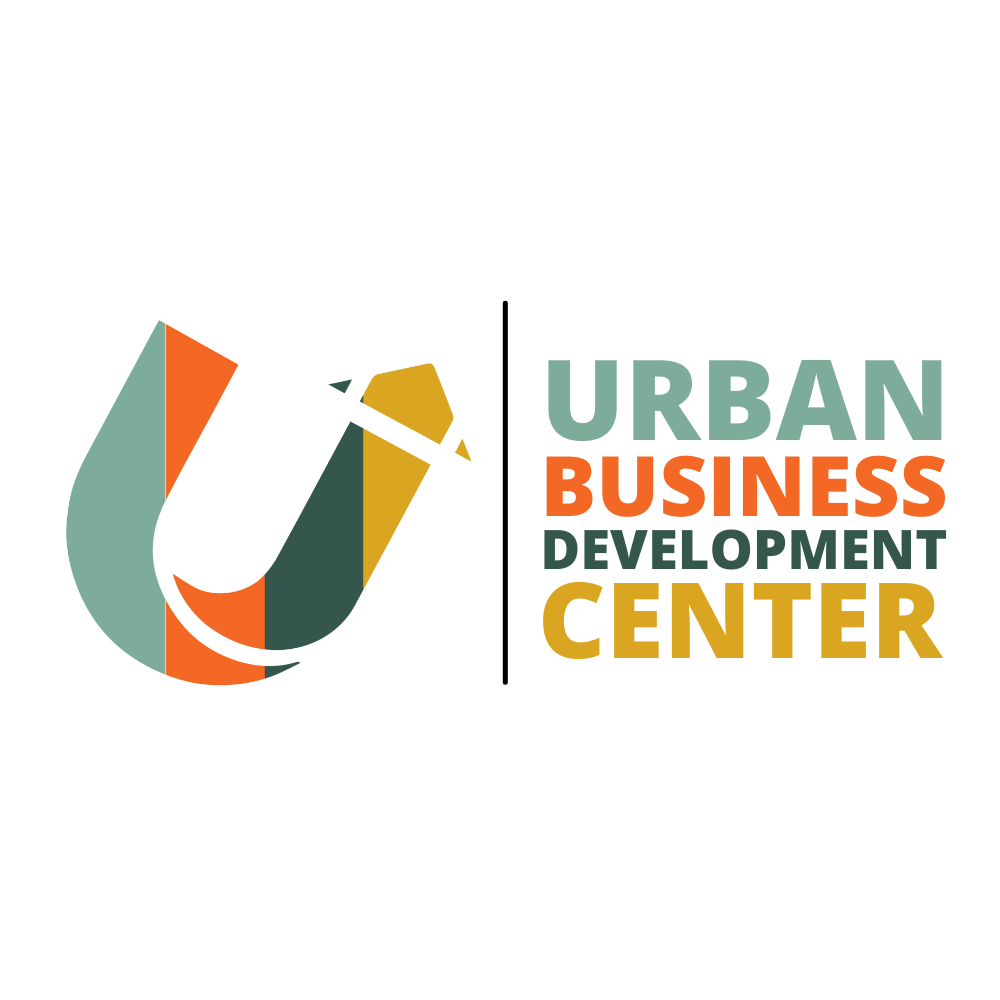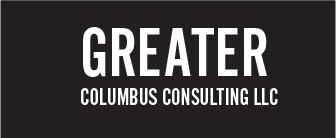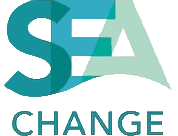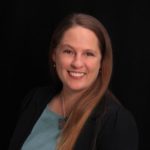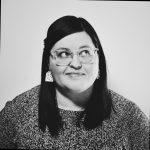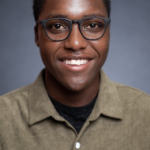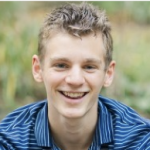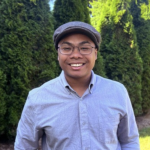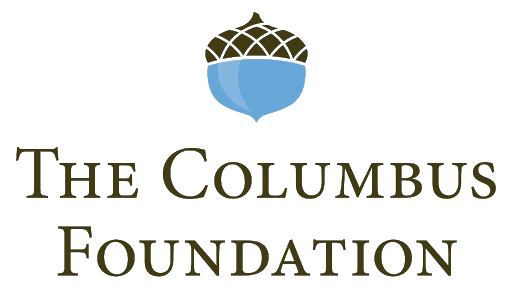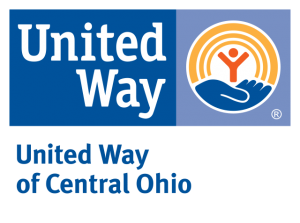
Columbus
October 13-15, 2023
Columbus College of Art and Design Crane Center
Overview
Schedule
Friday - October 13
- 5:00pm
- Doors Open
- Food!
- 6:00pm
- Kickoff
- 7:00pm
- Pitches Start
- 8:00pm
- Team Formation
- Get to know your team
- 8:30pm
- Empathy + Discovery Huddle
- Plan your empathy + discovery phase
- 10:00pm
- Doors Close
Saturday - October 14
- 9:00am
- Doors Open + Breakfast
- 10:00am
- Morning Huddle
- 11:00am
- Morning Mentors
- 12:00pm
- Lunch
- 3:00pm
- Afternoon Mentors
- 5:00pm
- Dinner
- 6:00pm
- Evening Huddle
- 9:00pm
- Doors Close
Sunday - October 15
- 9:00am
- Doors Open + Breakfast
- 9:00am
- Pitch Coaching
- 12:00pm
- Lunch
- 2:00pm
- Final Presentations are due
- 3:00pm
- Final Pitches kickoff!
Judges

Derek DeHart
Lead Product Manager, Alignable
Derek DeHart has over a decade of experience in tech, with a focus on product management in growth-stage startups. He's passionate about how technology can make a real difference in people's lives and communities. Currently, Derek is helping to boost product adoption and engagement at Alignable, a platform that connects small business owners, by improving the user experience with generative AI. Before ... Read More »
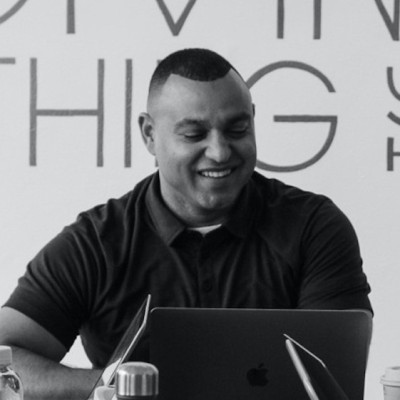
Fred Wills
Principal Director at Inclusiastic
I spent years helping organizations find new ways to improve how they serve their diverse stakeholders before "diversity initiatives" became commonplace in organizational development. I have long been fueled by the belief that diversity enhances intellectual cross-pollination, creates new knowledge and is a driver of innovation.
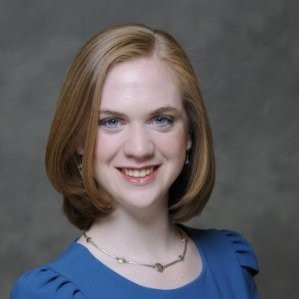
Stephanie Wightman
Software Engineering Manager at Foxen
I am a full stack polyglot developer with a passion for working closely with end users to build solutions that allow them to maximize their impact. I have over a decade of experience in a variety of industries such as agriculture, robotics, military, finance, healthcare, research, and compliance. With roles ranging from senior engineer to technical director, I am experienced in the full product development ... Read More »
Mentors
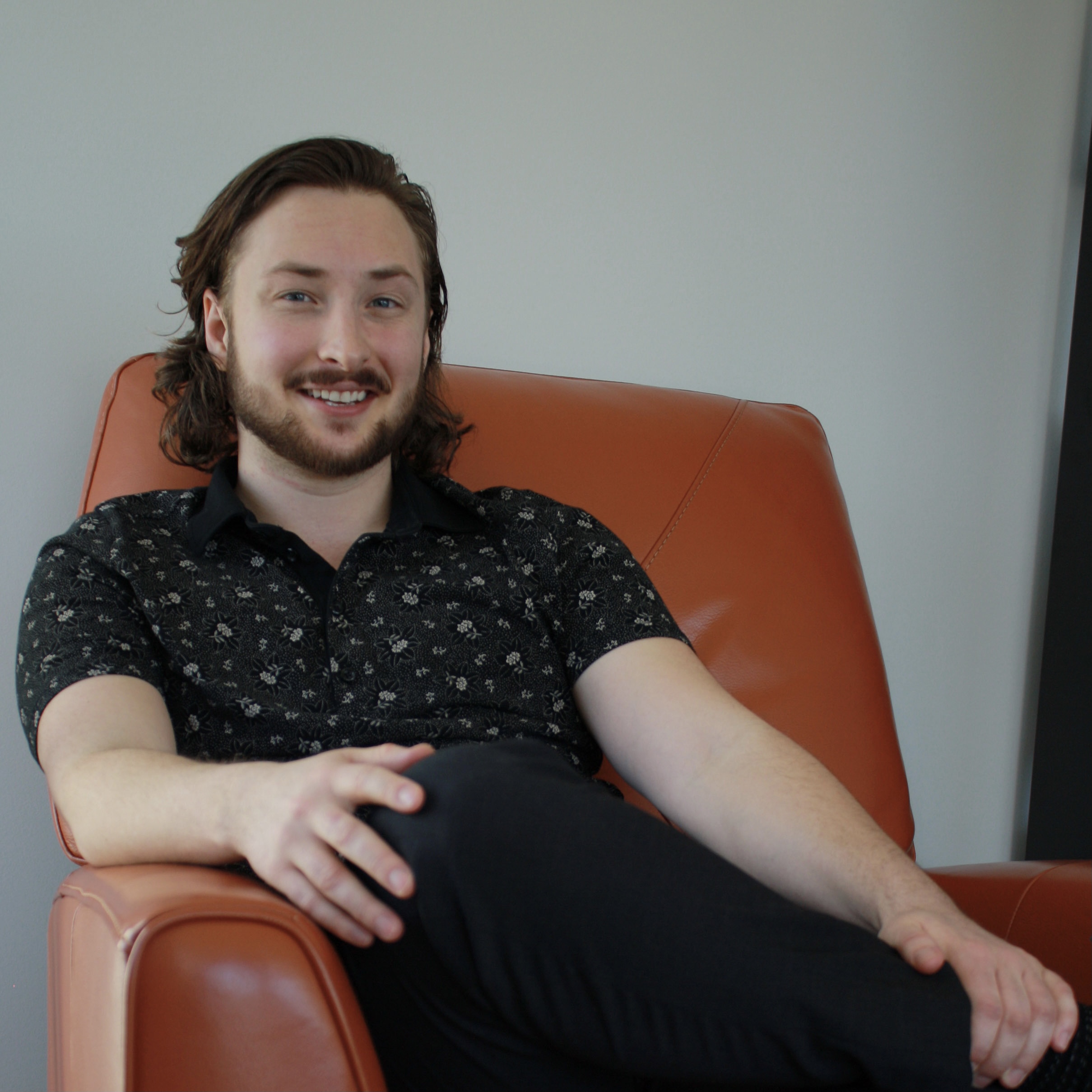
Ashton Colby
Founder of Gender YOUphoria
Ashton Colby (He/Him) advocates for LGBTQ+ civil rights protections at the state, federal, and international levels. He is the founder of Gender YOUphoria, a social enterprise changing disempowering narratives about transgender people in major media, healthcare, and public policy. Gender YOUphoria provides inclusive media consulting, and groundbreaking DEI training, for companies like Maven Clinic ... Read More »
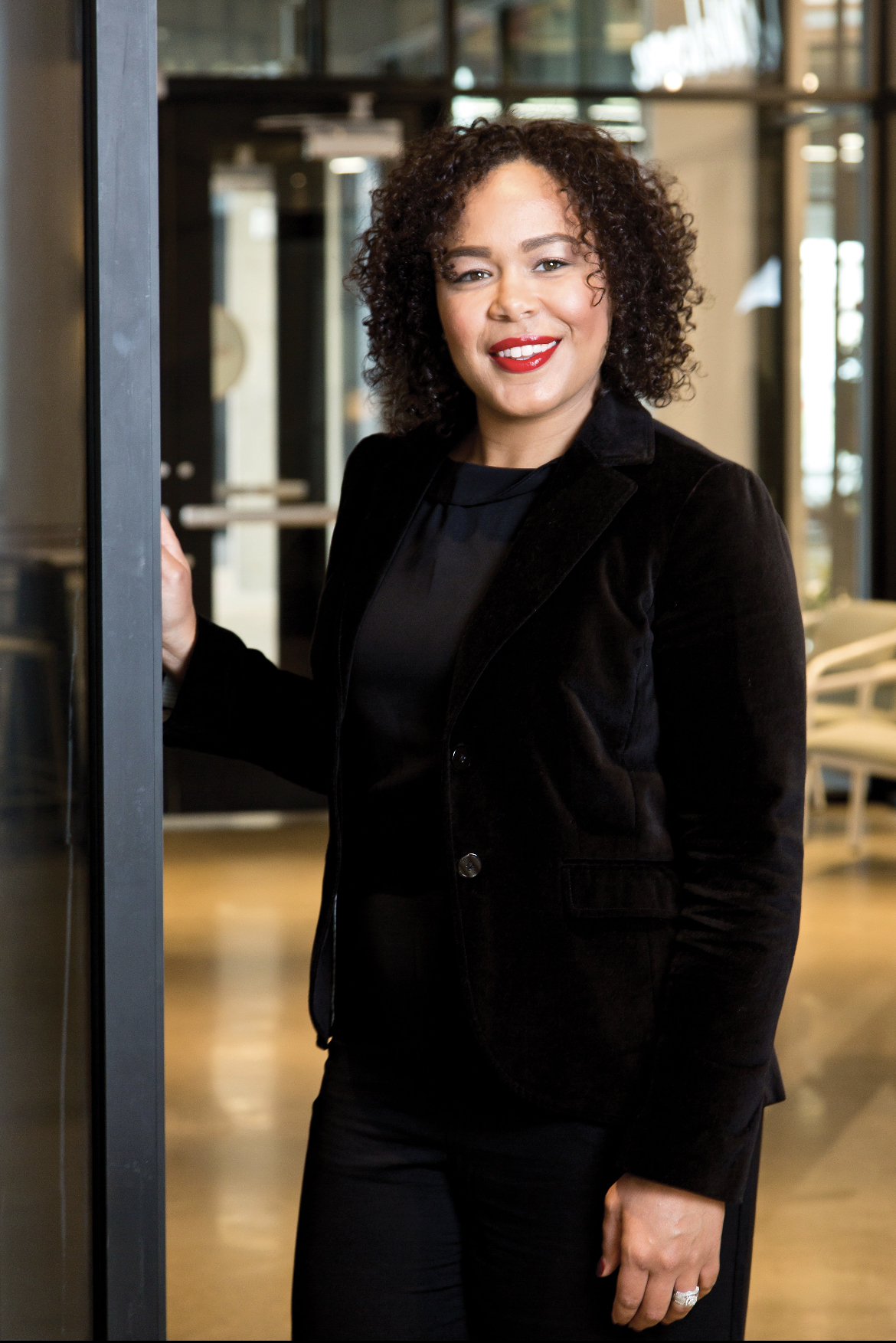
Autumn Glover
Vice President, Provider + Community Partnerships at AndHealth
Autumn Glover is Vice President of Provider and Community Partnerships at AndHealth, a Columbus based company focused on helping people reverse chronic disease and improving patient access. Autumn leads community engagement efforts and investment to maintain a focus on programs that put patients first. She is an accomplished and passionate leader in the areas of community engagement, health equity, ... Read More »
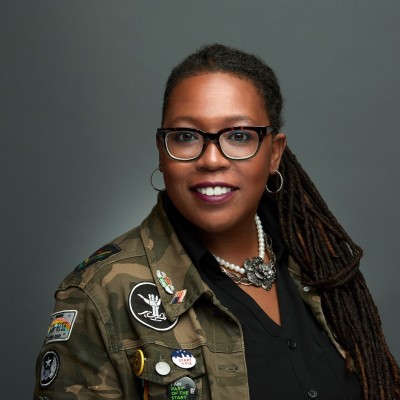
Erika Pryor
CEO and Founder of EPiC Learning Today
Erika works at the nexus of marketing, community building and tech to help clients connect and create innovations which delight and support With EPiC Learning Today, Erika leverages her dynamic training, broad experience, and diverse network to create more a-ha moments for learners by delivering transformative educational experiences.
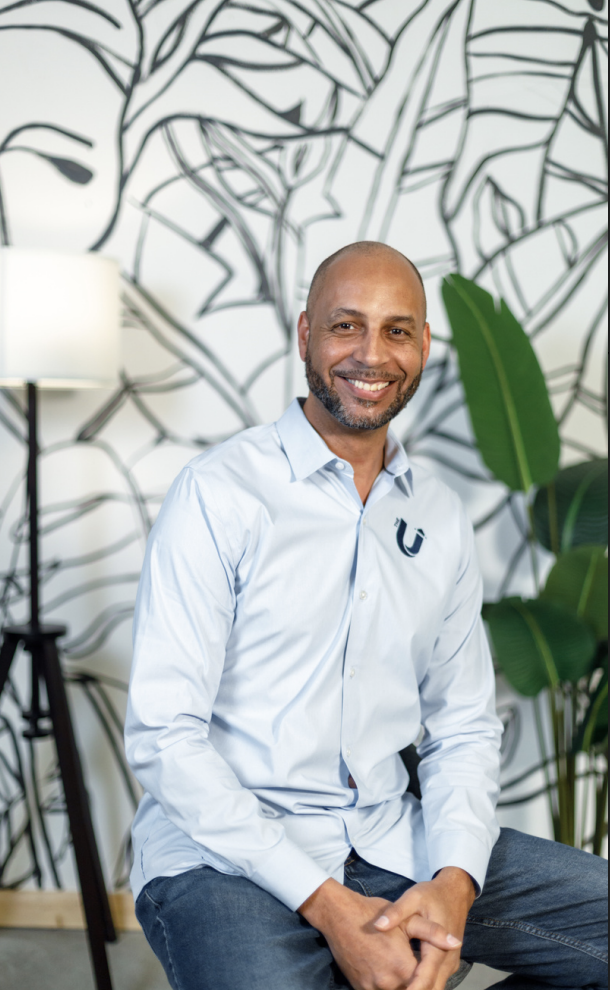
George “Ski” Zarebski
Co-Founder of the Urban Development Center (The U)
George Zarebski is a dynamic entrepreneur ecosystem builder based in Columbus, Ohio. He has a passion for connecting urban business owners with education, a network of resources and funding. Through the founding of the Urban Business Development Center and his volunteer organizer role with the 1 Million Cups, George has become a driving force in the region's entrepreneur community, known for his ... Read More »
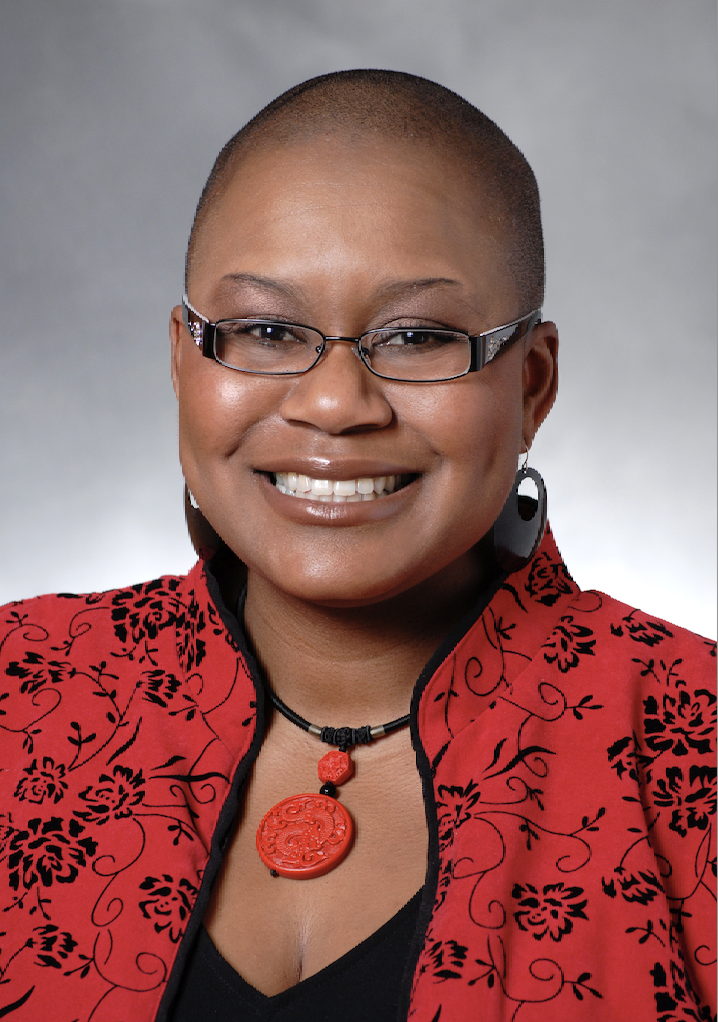
Lachandra Baker
Founder and Principal Consultant at LBB Edutainment
Lachandra B. Baker, MBA, CDP (she/her) is Founder and Principal Consultant at LBB Edutainment, a consultancy specializing in the development of strategies that improve and positively impact employee engagement, communications, culture, and diversity, equity, inclusion, and belonging. She received her bachelor’s degree from Central Washington University, majoring in Hospitality Management and ... Read More »
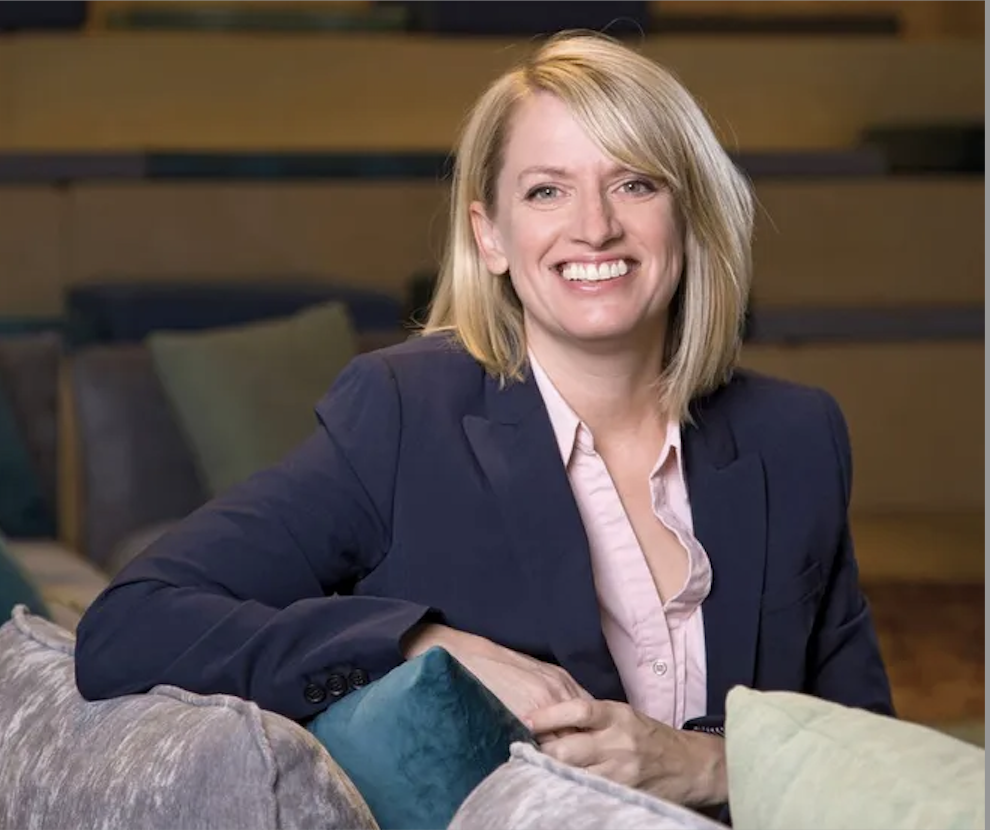
Mindy Yocum
Owner of Yocum Law Office
Mindy Yocum, an attorney and relentless advocate for justice, embarked on her legal journey in a way most people do - unexpectedly. A personal encounter with the complexities and shortcomings of the justice system ignited a fiery determination within her to overhaul the system from the ground up. Pursuing her newfound passion, Mindy enrolled in the evening program at Capital Law School. Shortly after ... Read More »
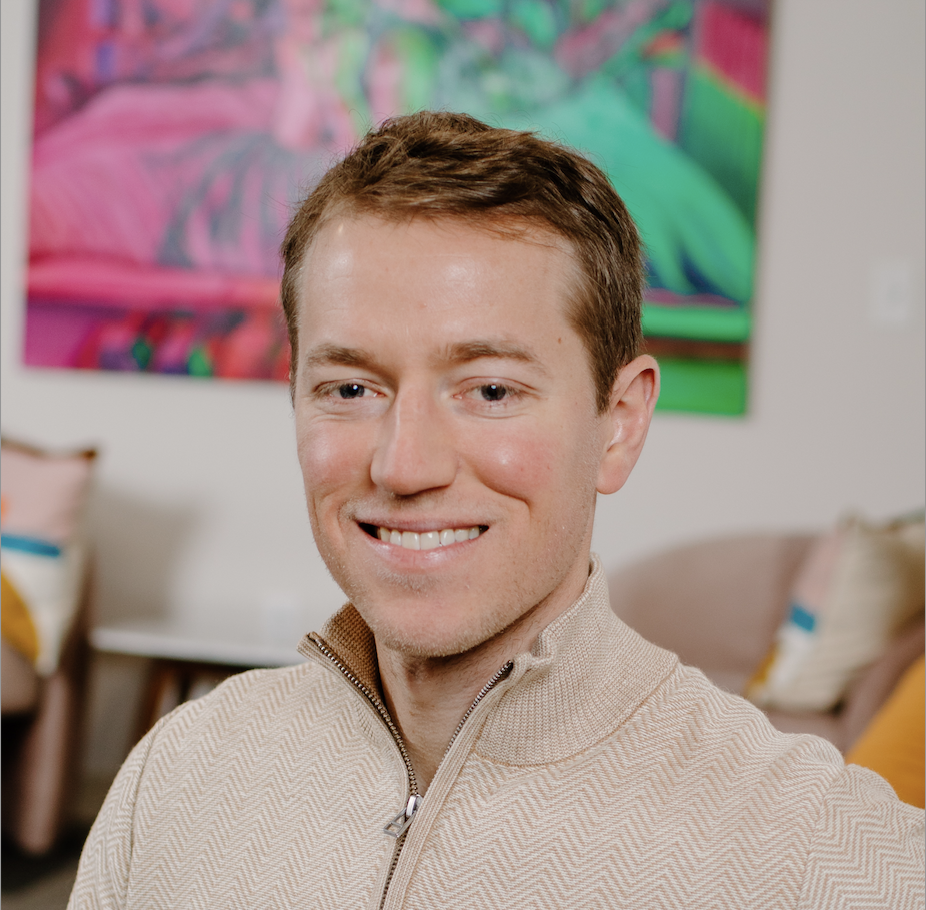
Frank Rosile
Product Director at AndHealth
Frank is a product leader with a passion for startups and building new things. His background is in UX design, getting his start crafting brand-new ATM experiences and unique car shopping journeys. Over the past 7 years, he's found a love for the healthcare space and was part of the founding team at AndHealth, where they are helping to make specialty care accessible to all in a way that empowers ... Read More »
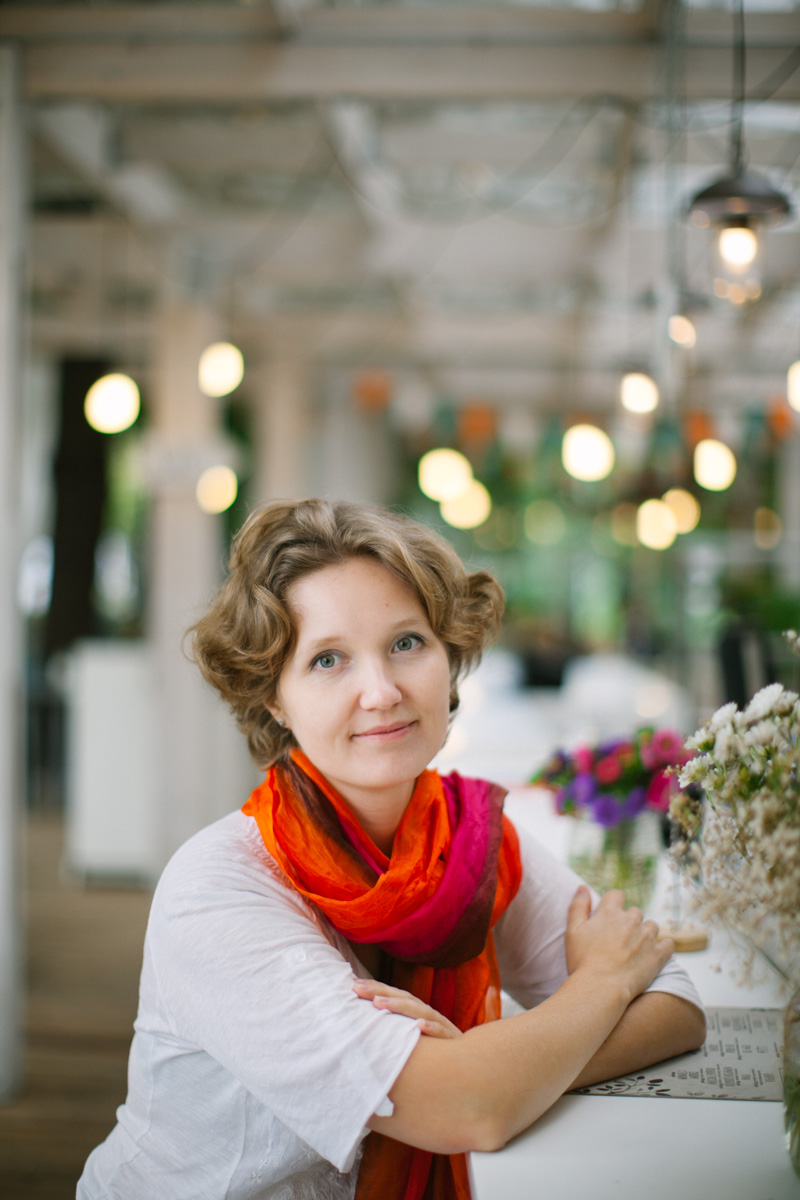
Maira Khoroshilova
UX Content Coordinator at The Ohio State University Wexner Medical Center
Maria Khoroshilova is a UX Designer/UX Researcher, specializing in human behavior and identifying user needs. She comes from a background of graphic design, communications and marketing. After volunteering for two years at GiveBackHack and being on the winning teams both times, she is returning as a mentor this year. She can help you identify product-market fit, narrow down revenue ideas, help create ... Read More »
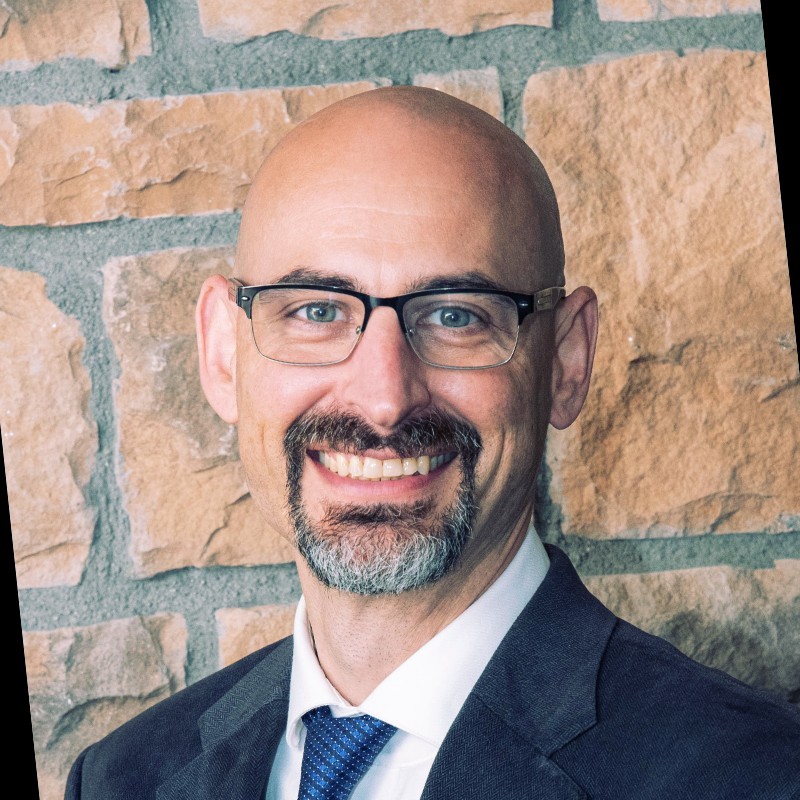
Phil Washburn
President and CEO at Furniture Bank of Central Ohio
I am an experienced leader in businesses, not-for-profits, and churches, with a proven track record of stabilizing and growing impact. My diverse work history includes business management, not-for-profit management, and church planting. My primary focus is on increasing social impact by developing a plan to reach goals and maximizing influence and effectiveness. I specialize in business operations, ... Read More »
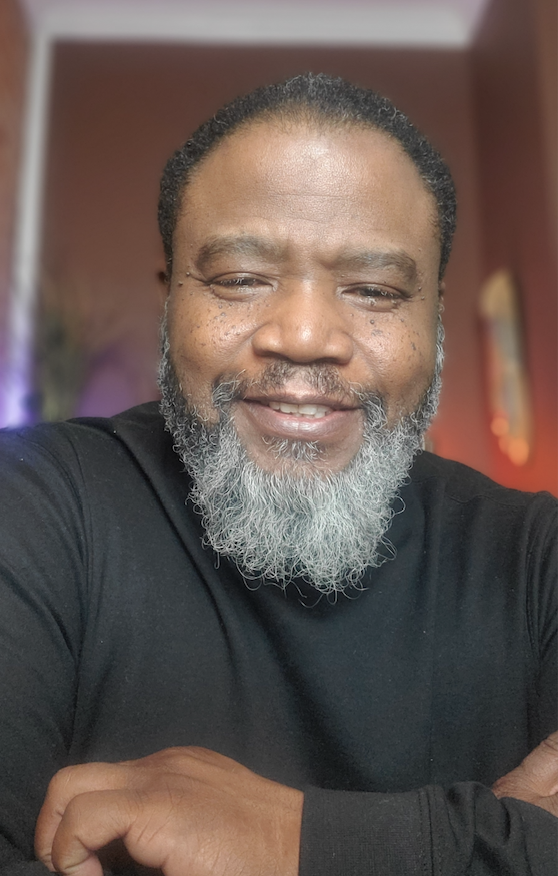
Mark Cardwell
Owner and Principal Consultant for Cardwell Communications LLC
Mark is the Founder and Principal Consultant at Cardwell Communications LLC and the Interim Executive Director for the Ohio Association of Nonprofit Organizations (OANO). Mark leverages comprehensive marketing consultancy with a focus on strategic plan development. Mark's expertise extends to coaching, consulting, and serving as an interim or fractional marketing director, alongside developing and ... Read More »
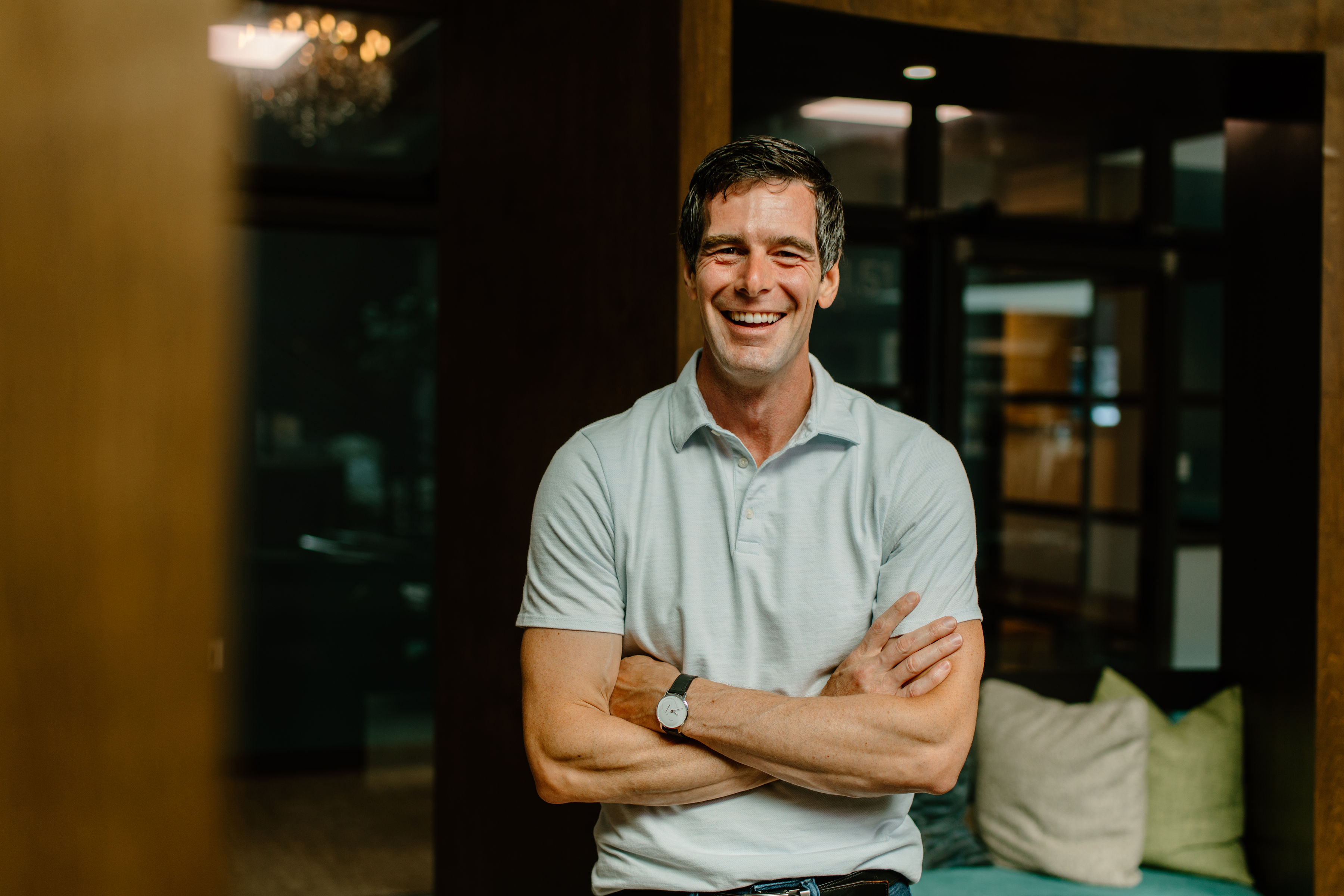
Mark Lorenz
SVP of Product at AndHealth
Mark is a product focused healthcare senior executive. He was responsible for all aspects of the ScriptHero business, growing it from just an idea up to the point where it saved patients over $40 million dollars on their prescription medication costs. “I love solving complex problems that don't have an expert you can consult, a playbook you can run, or likely even one right answer. The biggest, ... Read More »
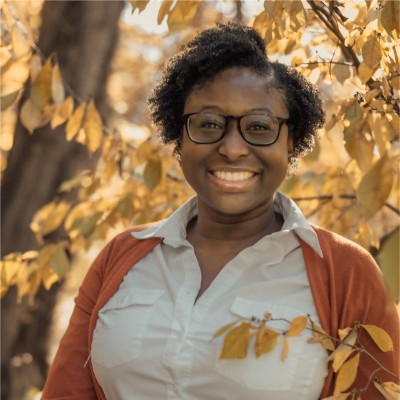
Debra Whittingham
Senior UX Researcher at Genesys
Debra Whittingham is a driven innovator, service designer, and UX researcher offering 16 years of influencing a human-centred business culture and designing experiences humans love in the medical, education, and telecommunication fields.
Event Sponsors
Lead Sustaining Sponsors
IGS is driven by a set of core beliefs that moves us toward an energy-independent United States, powered by domestically-produced, environmentally-responsible resources. And just as IGS seeks disruptive innovations in the energy space, they take a similar approach to their community investments. For this reason, the company has made social enterprise a primary focus of their philanthropy. IGS is proud to partner with GiveBackHack to invest in entrepreneurial solutions to complex social issues – improving lives by harnessing market forces to get innovations to the people who benefit the most.
The Columbus Foundation is dedicated to strengthening and enriching the Central Ohio community through impactful philanthropy and community-driven solutions. Guided by our core values of innovation, collaboration, and inclusivity, we are committed to supporting initiatives that create lasting change. Our investment in social enterprises exemplifies this commitment, as we believe in the power of entrepreneurial solutions to address complex social issues. Partnering with organizations like GiveBackHack, we aim to empower changemakers to transform visionary ideas into real-world impacts, improving lives and fostering a brighter future for all.
Facilitators
Emily is a Design Thinking practitioner by day and a Social Innovation enthusiast by night. She spends her time building the social impact launchpad at GiveBackHack, coaching social entrepreneurs, and empowering communities through Design Thinking facilitation. She is passionate about leveraging systems thinking to build sustainable social solutions, creating true social impact in our communities. Previously ... Read More »
Max is a Software Engineer living in Columbus. He is thrilled by watching people drive to make great ideas a reality, especially when they are focused around compassion and community. He loves the outdoors and music.
Clayton is a versatile professional with a background spanning hospitality, tech, real estate, and finance. His career journey began in hospitality, where he honed his customer-centric approach, and he transitioned into the tech startup ecosystem, igniting his passion for innovation and entrepreneurship. In real estate and finance, Clayton excelled in strategic thinking and risk management. However, ... Read More »
Organizers
Emily is a Design Thinking practitioner by day and a Social Innovation enthusiast by night. She spends her time building the social impact launchpad at GiveBackHack, coaching social entrepreneurs, and empowering communities through Design Thinking facilitation. She is passionate about leveraging systems thinking to build sustainable social solutions, creating true social impact in our communities. Previously ... Read More »
Grant loves applying his skills to create a positive impact in the Columbus community. He is inspired by the ideas brought forth at GiveBackHack, and hopes he can help bring them to fruition! In his spare time, he enjoys music, watches sports (especially Ohio State football), goes bike riding, and plays soccer.
Max is a Software Engineer living in Columbus. He is thrilled by watching people drive to make great ideas a reality, especially when they are focused around compassion and community. He loves the outdoors and music.
Rachyl founded @greatercolumbusconsulting from her passion for helping small local businesses succeed. Rachyl is a lifelong Buckeye, with a degree from The Ohio State University, and 20 years of business experience in central Ohio. She has assisted executive teams in securing over $65M in funding, as well as helping businesses of all sizes create strategic goals that are realistic based on their past ... Read More »
Clayton is a versatile professional with a background spanning hospitality, tech, real estate, and finance. His career journey began in hospitality, where he honed his customer-centric approach, and he transitioned into the tech startup ecosystem, igniting his passion for innovation and entrepreneurship. In real estate and finance, Clayton excelled in strategic thinking and risk management. However, ... Read More »
Lydia is the senior graphic designer at AndHealth and has over 10 years of experience working with nonprofits, social enterprises, and startups. She is on the boards for the Columbus Center for Architecture and Design (CFAD) and Columbus Society of Communicating Arts (CSCA).
The ebullient Suzy Bureau (as she was referred to in TechCrunch) is dedicated to building impactful communities & products. Suzy is the Founder of GiveBackHack, an organization that helps bridge the gap between tech & social impact communities through the integration of Lean Startup/Design Thinking. GiveBackHack comes to life via a volunteer-based team of 50+ and has helped vet over 100 social ... Read More »
I am a Help Desk Assistant at Ohio Dominican University, where I provide prompt and courteous technical support to end-users, troubleshoot and diagnose complex technical problems, and collaborate with the IT team to identify and implement process improvements. I am also an Orientation Leader at ODU, where I facilitate orientation programs and activities to welcome and assist incoming students in their ... Read More »
The power to transform ideas into tangible business ventures using technology is my dream. Through my academic and entrepreneurial endeavors at Ohio State, I aspire to bring this dream to life. Bridging the gap between innovation and execution, and creating opportunities to turn concepts into thriving realities within the ever-evolving digital landscape. I'm a sophomore at The Ohio State University, ... Read More »
Owen Myers leads education programs for GiveBackHack, which have reached over a thousand students since 2022. Previously, he was the founder of TeachTo, a GBH-backed edtech startup, and an associate researcher for the Pacific Institute for Research and Evaluation.
Jack Demos is a dedicated professional with a rich and varied background, driven by a profound commitment to effecting positive change. Graduating with honors (Magna cum laude) from The Ohio State University, he earned a B.S. in Political Science and Government, which served as a strong foundation for his multifaceted journey. His leadership acumen is exemplified through his role as President of the ... Read More »
The tl;dr of my day-to-day is to cultivate relationships that are professionally and personally fulfilling. As a Growth Strategist, I work with business owners, marketing managers, brand directors, and tech teams to clarify their organization's position in the digital market, reveal audience insights, and chart a path to growth opportunities. This is accomplished by tailoring a bespoke digital ... Read More »
Pre-submitted Ideas
-
1. Breathe Easy! submitted by Karshyra Marshall
Breathe Easy!Submitted by Karshyra Marshall
What is the problem are you solving?
Did you know that Asthma affects nearly 25 million people in the United States alone!
African- Americans are 1.5 times more likely to have Asthma, and 5 times more likely to visit the ER due to having symptoms. Underserved populations are 3x's more likely to be hospitalized and die from Asthma. African- Americans are 3 times more likely to die to from an Asthma episode compared to White Americans (AAFA.org). Asthma is the 4th leading cause of chronic illness and the world’s most common life-threatening allergic reaction. Breathe Ohio Inc. will help reduce absenteeism seen at school for the demographic we serve; through holistic management, exercise and breathing techniques. Our mission is to aspire to be a leader in the provision of education information and training in the management of Asthma episodes.
How will this idea solve the problem?
The idea to to create fun and interactive workshops at schools and within the community to get kids engaged. The goal is to have individuals around the youth who care and will motivate and push them to achieve their goal throughout the workshop. The idea is to establish different areas within the workshop where people are learning about foods to eat that better align with their diagnosis, as well as making the food. Other areas will include breathing tips and yoga exercises for individuals to better manage and control his/her symptoms. Along with exercise techniques and workshops where kids are remaining active by learning what to do and not to do when they are over exerted but unaware it is a test for the team to understand what the child may or may not need through out their journey.
Is this idea brand new or has it been partially-vetted?
Brand New
Why are YOU uniquely positioned to solve the problem? What other people do you need to help?
I am uniquely positioned to solve this problem due to me having Asthma. I vowed to create change within my community. As a lifelong asthmatic, I am on a mission to create a nation of healthy children and/or adults through my non-profit, Breathe Ohio Inc. As someone who has witnessed firsthand the injustice of the social determinants of health in our communities of color, I am calling on all local institutions to re-examine their role in ensuring the health and wellbeing of our most valuable resource.
Our goal is to create a different lifestyle in order to promote a healthier community by increasing physical activity, educating parents and caregivers on food resources available in the community, and focusing on overall wellness of each individual child.
My journey for this cause is just beginning and I plan on implementing the change I want to see in the community for generations to come! Don’t let asthma stop you from reaching your goals. #KnowYourTrigger -
2. Planting Life submitted by Doug Cichon
Planting LifeSubmitted by Doug Cichon
What is the problem are you solving?
There is too much friction between "I want to plant native plants" and "I have planted native plants". The closest existing tool which solves this problem is Native Plant Finder (https://www.nwf.org/NativePlantFinder), but it often lacks pictures and doesn't allow for searching by growing conditions. After directing friends & family to that tool, they often were frustrated and ended up planting non-natives.
Tangentially, I've also found that even people who attend talks about native plants don't know where to get them. Knowledge of native focused nurseries often spreads through word of mouth.
How will this idea solve the problem?
Planting Life solves this by making it simple to discover native plants by location & growing conditions. It also provides a summary of information gardeners commonly want to know (height, deer resistant, aggressive spread, etc) and links to Wikipedia/USDA where they can learn more. I've also gathered a list of native focused nurseries to suggest nearby native focused nurseries.
Is this idea brand new or has it been partially-vetted?
Partially-vetted
How you have vetted your idea and the success or difficulties you have seen thus far?
I have built https://planting.life to begin solving this problem. I've received an overwhelming amount of positive feedback from Sustainable Westerville, a naturalist, local gardeners, and other users through a feedback from on the website.
I've had success in creating the core plant discovery technology for the tool, which uses GPT 3.5 to suggest plants & populate structured data about them. GPT results are cached to significantly reduce latency & operational costs.
My challenges have been around wrapping this core technology in a workflow which encourages people to not just browse, but also plan, order, and plant by contacting a local nursery.
Why are YOU uniquely positioned to solve the problem? What other people do you need to help?
I'm a software developer with over a decade of experience, much of it related to integrating with data science systems and reducing their operational costs. My wife & I are also in the process of planning/planting several native gardens which gives me experience with the problem. I'm also already involved with Sustainable Westerville which has been a fantastic source of feedback.
-
3. Second Glance submitted by Amanda Lewis
Second GlanceSubmitted by Amanda Lewis
What is the problem are you solving?
Lack of work for local creatives, underutilized public spaces, place-based identity, very few community engagement opportunities, local empowerment, and long-term systems change. There are loads of data that support public and collabortive art as a means for economic development and social cohesion.
How will this idea solve the problem?
By transforming bland spaces into impact and opportunity zones, we are employing local artists and creatives for innovative solutions to address local change. We are creating a renewed identity. We are empowering marginalized populations to engage their communities and create grassroots initiatives to address changing needs. We are reviving empty downtown, historic, and neighborhood spaces into areas of interest and exploration within our town.
Is this idea brand new or has it been partially-vetted?
Partially-vetted
How you have vetted your idea and the success or difficulties you have seen thus far?
We've submitted proposals to various private and public sectors, have already begun fundraising, and have established working partnerships with businesses, organizations, educational institutions, local government, and more.
Why are YOU uniquely positioned to solve the problem? What other people do you need to help?
Our organization is an arts and culture nonprofit made up of artists, educators, activists, and community organizers. We have developed cross-sector partnerships to support our initiatives and see their success. We engage the community in every project, from design to implementation, to ensure projects serve the entire community and not catering to those already in positions of power and influence. We involve and invite anyone to join and create with us, and ensure projects are as culturally diverse as our community.
-
4. Engaging Older Adult Patients in the Development and Implementation of a Therapy Dog Program submitted by Beth Steinberg
Engaging Older Adult Patients in the Development and Implementation of a Therapy Dog ProgramSubmitted by Beth Steinberg
What is the problem are you solving?
Older adults often experience loneliness which diminishes quality of life and is directly associated with increased pain, depression, and insomnia. Within the healthcare setting, feelings of loneliness can be exacerbated as older adults may be ignored, talked over, and treated with less respect and courtesy. What healthcare providers see as indifference to participation in their care may well be a sense of isolation and helplessness due to ageism. Therapy dogs, as an intervention to support older adults can offer a sense of comfort and connection to counter the vulnerability that patients often feel during a hospital stay.
How will this idea solve the problem?
Therapy dogs, as an intervention to support older adults during healthcare experiences, can offer a sense of comfort and connection to counter the vulnerability that patients often feel during a hospital stay. Therapy dog interactions may also improve mood and decrease anxiety, depression, perceptions of pain, and loneliness.
Is this idea brand new or has it been partially-vetted?
Partially-vetted
How you have vetted your idea and the success or difficulties you have seen thus far?
We have successfully developed, implemented, and evaluated a therapy dog program to support healthcare worker mental health and well-being. With Ohio's increasing older adult demographic, a large proportion of patients within healthcare systems are 65 years and older and experience increased anxiety, stress, loneliness, and perceptions of pain.
Interactions with therapy dogs have been shown to improve mood, pain, and loneliness. We envision an opportunity to improve upon traditional hospital therapy dog programs, providing live and virtual visits, incorporating intuitive bedside and appointment-based technology, integrating fully into clinical care to support the needs of older adults.
We have proposed our ideas to hospital leadership and an initial policy draft has been submitted for review. In late October 2023, we are scheduled to present the concept to patients and family members to assess interest and solicit feedback.
Why are YOU uniquely positioned to solve the problem? What other people do you need to help?
I am a co-founder of the staff-focused therapy dog program and was the primary investigator of research that found that HCWs were highly satisfied with the therapy dog intervention and experienced significant improvements in self-reported mood after interactions with the therapy dogs. With extensive clinical and administrative nursing experience, I also have an understanding of the healthcare environment and care necessary to manage older adult patients with complex medical conditions.
-
5. The Resow App submitted by Mason F Dorrian
The Resow AppSubmitted by Mason F Dorrian
What is the problem are you solving?
Problem: Lack of fundraising avenues for social enterprises/startups/SBOs
How will this idea solve the problem?
It opens up a new channel of fundraising through how people interact with each other today (social media). There's also no one currently running something to solve this issue in the current business landscape.
Is this idea brand new or has it been partially-vetted?
Brand New
Why are YOU uniquely positioned to solve the problem? What other people do you need to help?
With a background in accounting, a network of social entrepreneurs, an out-of-the-box approach to solving issues, and cofounders in social media marketing and technology. I'm extremely passionate about this project as well.
-
6. Ajira School of Technology (AjiraTech) submitted by Muzabel Welongo
Ajira School of Technology (AjiraTech)Submitted by Muzabel Welongo
What is the problem are you solving?
Lack of digital skills, expensive college, and limited access to employability resources among migrants and low income individuals.
How will this idea solve the problem?
AjiraTech is a tech school that leverages high quality curriculum, AI technology, and lifelong career support to enable learners to access meaningful career opportunities.
Is this idea brand new or has it been partially-vetted?
Brand New
Why are YOU uniquely positioned to solve the problem? What other people do you need to help?
I'm a former refugee, social entrepreneur, and tech professional with a passion for getting more people into meaningful career opportunities. Our idea will leverage AI to personalize learning, and each student will he assigned to a career coach to ensure successful transition from learning to employment.
-
7. Give Good Co. submitted by Cole Still
Give Good Co.Submitted by Cole Still
What is the problem are you solving?
Lack of transparency and inequity within the nonprofit sector
Rising mental health rates
How will this idea solve the problem?
We're focused on providing products that improve the wellbeing of consumers, while backing grassroots initatives!
Is this idea brand new or has it been partially-vetted?
Partially-vetted
How you have vetted your idea and the success or difficulties you have seen thus far?
I have taken it into Festival For Good, talked with stakeholders,and pitched it. We've recieved enough funding to boostrap the product side but not the tech side!
Why are YOU uniquely positioned to solve the problem? What other people do you need to help?
I have worked in this space, and have seen how some nonprofit directors make 6 figure salaries and the equitable organizations making impact lack access to the funding they need
-
8. Either HouseWork or Landscape (you pick :)) submitted by Mateo Montoya
Either HouseWork or Landscape (you pick :))Submitted by Mateo Montoya
What is the problem are you solving?
Give access to a better market of landscaping needs.
How will this idea solve the problem?
Be able to give a better showcase of contractors to use and see their rating in app etc…
Is this idea brand new or has it been partially-vetted?
Partially-vetted
How you have vetted your idea and the success or difficulties you have seen thus far?
I started the first mobile app in react native (client side). As well as the back end in Java Spring Boot.
It was mainly to learn React Native.
Why are YOU uniquely positioned to solve the problem? What other people do you need to help?
Im a software developer who is also passionate about landscaping.
-
9. WrkFlw submitted by Ammanuel Isaac
WrkFlwSubmitted by Ammanuel Isaac
What is the problem are you solving?
Struggling artists often face financial challenges. This would allow them to earn income through affiliate links, helps alleviate their financial burdens. New and struggling artists also often struggle to gain exposure for their work. By providing a platform to showcase their workflow, this would enhance their visibility, potentially attracting a wider audience. Access to quality equipment and resources is a common barrier for many artists. By sharing information about studio setups and equipment, my platform helps artists make informed decisions, improving their access to necessary resources. They can purchase the correct gear for the type of genre or artist they want to emulate.
How will this idea solve the problem?
By providing struggling artists with a platform to promote affiliate products, they can earn additional income, mitigating financial challenges. This would be an additional means to generate revenue for themselves.
This would help bring a sense of community and networking, connecting artists with each other and potential collaborators, expanding their opportunities.
Artists can share information about equipment and resources, helping others make informed decisions, thus overcoming the barrier of limited access to quality tools.
Encouraging artists to share their setups can facilitate knowledge exchange, empowering others with valuable insights and skills, improving overall industry expertise.
Is this idea brand new or has it been partially-vetted?
Brand New
Why are YOU uniquely positioned to solve the problem? What other people do you need to help?
I am both a junior developer and an electronic musician myself.
I work as a full stack developer working with javascript and python. I currently work with a startup at the moment but I'm part-time.
As a musician I own a synth that I preform occasionally around Columbus. I've met with various artists and they are often unsure how to integrate electronic instruments into their production setup. Things can become very unclear if you don't have much knowledge in this area. If there were better layouts to show the flow of audio and midi management and gear setup this could make things much clearer for new musicians. They'd have a visual diagram and know which gear to buy. -
10. Independence Through Interdependence Assistive Technologies Inc. submitted by Shannan Palma
Independence Through Interdependence Assistive Technologies Inc.Submitted by Shannan Palma
What is the problem are you solving?
There are an estimated 6.8 million autistic people in the United States alone (https://blog.marketresearch.com/huge-untapped-demand-in-the-4-billion-u.s.-autism-treatment-centers-market). Autism treatment programs are a $4 billion industry in the US, however, the vast majority of that funding is geared towards children. Only 2% of research funds in 2017 went to lifespan research and 6% went to services (https://iacc.hhs.gov/publications/portfolio-analysis/2018/portfolio_analysis_2018.pdf?ver=4).
The internal costs of trying to live in a world that’s not designed for autistic brains and bodies are high. A Danish study found Autistic people were three times more likely to try to kill themselves as allistic (nonautistic) people (https://jamanetwork.com/journals/jamanetworkopen/fullarticle/2774853). For autistic women, the risk was eight times as high. Autistic people in general were four times more likely to succeed in killing themselves.
Autistic adults are an underserved population who often slip through the cracks. Many serious negative impacts are only visible when an autistic person's life is viewed holistically through the social model of disability.
How will this idea solve the problem?
We have five app ideas that could alleviate common barriers for autistic people, but we need to figure out which one has the best ROI so we can tackle that first. Then we need to design and prototype it.
1. Danger, Will Robinson!
This app logs environmental data from a small wearable sensor and notifies the user when sound, lighting, or lack of movement become risk factors for sensory overload and prompts them to regulate their nervous system. Users may input other stressors as well. Over time, it learns the user's stress tolerances and becomes more customized to their needs. Users may also preprogram messages and prompts.
Addresses
Sensory overload
Nervous system dysregulation
Meltdowns / shutdowns
2. Food with Friends
Users input a list of their safe foods, any allergies or dietary restrictions, and nutritional guidelines. The app then searches restaurant menus and reviews to see if the user would find something to eat there. Users can also report on the sensory environment (light/noise) to help others determine if their overall experience will be worth it.
Addresses
Sensory overload
Executive function challenges
Social isolation
3. Magic 8 Ball
Users input their income, budget, and financial priorities, training the app on their values through machine learning. When they are considering making a purchase, they select the item in the app, which checks whether the user can afford it and whether the purchase aligns with the user's priorities and longterm financial health. The app returns its analysis in plain language to guide the user to make real-time decisions that align with their values and goals.
Addresses
Executive function challenges
Financial instability
4. Pick One
This decision facilitation app allows users to set the parameters for making a decision (e.g. cost, accessibility, color), input the options, and quickly eliminate any options that do not fit the parameters they’ve pre-selected. If more than one option is roughly equivalent, the user may opt to use randomization to determine the final selection.
Addresses
Executive function challenges
Financial instability
Cognitive overload
5. Next Step
This app would be developed to assist with apraxia. Users program in the various actions in multi-step tasks (comes with editable generic phrases by default) and then when the user selects that series, the task list loads and the app provides prompts to complete the next step in the series.
The app then prompts the user to input when that step is done so it can proceed to the next. When the task series is done, the app signals completion and suggests related task series. This app comes in your choice of a minimalist or gamified design to suit different neurotypes and situations.
Addresses
Apraxia
Executive function challenges
Financial instability
Cognitive overload
Independence
Is this idea brand new or has it been partially-vetted?
Partially-vetted
How you have vetted your idea and the success or difficulties you have seen thus far?
We have established a c corp for a social enterprise subsidiary of the Autistic Self-Reliance Support Network (ASRSN) called Independence Through Interdependence Assistive Technologies Inc (ITI). Both organizations are entirely disability-led (majority autistic). We plan to use subscription fees from assistive apps created through ITI to fund direct assistance work through ASRSN. We have a pitch deck describing our proposed business model and five initial app ideas. Our eventual goal is to create a proprietary data infrastructure that will allow users to own their data and choose research projects to participate in. That infrastructure will underlie a suite of assistive apps that are developed for autistic people but can be used by nonautistic people as well.
Initial response from the autistic community and from potential investors has been promising, but we need a product in order to move forward. We are seeking validation and feedback on at least one of our app ideas. We need help figuring out which one to develop first, as well as help creating a prototype. We are grateful for all assistance and are specifically looking for technical partners who are mission aligned and would like to join our team longterm.
Here's our current pitch deck with the ideas spelled out: https://www.canva.com/design/DAFrj3AkiQA/YArx1MyLoC-Jhe6REdWg4A/view?utm_content=DAFrj3AkiQA&utm_campaign=designshare&utm_medium=link&utm_source=publishsharelink
Why are YOU uniquely positioned to solve the problem? What other people do you need to help?
I (she/her) am the cofounder and co-executive director of the Autistic Self-Reliance Support Network and am myself late-diagnosed Autistic + ADHD. I am an experienced nonprofit administrator, product developer, and computer science educator, and an award-winning PhD with expertise in how and why people become invested in stories, symbols, and ideas that are not in their own best interests. The concept of mythos at the core of my academic work correlates to general-to-specific neural processing (neurotypical thinking).
My cofounder and co-executive director, Lorien Dana (she/her; parent, self-diagnosed with ASD) is an expert in learning differences with over 15 years teaching experience with children with ADHD, dyslexia, and ASD.
Our third partner, who will not be at the GBH, is Jessalyn Smiley Clark (she/her; late-diagnosed dyslexic + auditory processing difficulties). She is an expert in disability services with 19 years experience in training, accommodations, adaptive technology, compliance, and mobility assistance. -
11. Hatch + Nest submitted by Dominique Jackson
Hatch + NestSubmitted by Dominique Jackson
What is the problem are you solving?
According to the American Psychological Association, approximately 10-15% of all new mothers experience postpartum depression. However, rates of postpartum depression are significantly higher for women of color, with studies showing that it affects up to 38% of Black mothers.
Hatch + Nest addresses a multifaceted problem involving disparities in postpartum health and well-being for women of color. Specifically, we aim to solve the interconnected issues of postpartum depression, mental health disparities and lack of social support.
According to the U.S. Department of Health and Human Services, women with strong social support networks experience better maternal and infant health outcomes. In contrast, the lack of social support is associated with a higher risk of maternal depression and anxiety.
These statistics emphasize the urgency of addressing the disparities in postpartum depression, mental health and social support for women of color. The data underscores the need for innovative solutions like Hatch + Nest, which aim to reduce these disparities, improve maternal health outcomes, and ensure that every mother has access to the care and support she deserves.
How will this idea solve the problem?
Hatch + Nest seeks to solve the problem of postpartum disparities by addressing mental health challenges and the lack of social support. By providing culturally competent services and community support networks, it aims to create a more equitable and supportive postpartum experience for women of color, ultimately improving maternal and infant health outcomes.
The platform intends to create community-driven support networks, connecting new mothers with resources and providing emotional and practical support. This addresses the problem of a lack of social support, which often leads to feelings of isolation and inadequacy among women of color during the postpartum period.
Is this idea brand new or has it been partially-vetted?
Partially-vetted
How you have vetted your idea and the success or difficulties you have seen thus far?
We have conducted research and surveys in our target communities to assess the specific needs and challenges faced by women of color during the postpartum period.
We also engaged with healthcare professionals, mental health experts, and community leaders to gain insights and understand the feasibility of our proposal.
In our preliminary research, we have seen overwhelming support from community members, providers, and end users who recognize the urgency of addressing these disparities.
Why are YOU uniquely positioned to solve the problem? What other people do you need to help?
My own postpartum journey has fueled a strong sense of purpose and a deep understanding of the challenges and the need for improved postpartum care. My expertise in healthcare technology equips me to develop a technological solution to bridge the gap in postpartum support. The combination of professional knowledge and personal commitment drives my determination to bring about meaningful change in postpartum care. I am not only motivated by empathy but also by a comprehensive understanding of how technology and community support can make a significant impact.
-
12. Buddyaid-Helping neighbor in need Identify local talents within neighborhood who does have time and talent to spare. Its a connecting platform for the neighborhood where people can market their service/talents for nominal pay. submitted by Anuja Murugesan
Buddyaid-Helping neighbor in need Identify local talents within neighborhood who does have time and talent to spare. Its a connecting platform for the neighborhood where people can market their service/talents for nominal pay.Submitted by Anuja Murugesan
What is the problem are you solving?
Generally We don't find help for daily tasks at nominal pay. Now that work from home is unevitable, working parents need an extra hand for almost every task. We provide a chance for people to work for neighbors based on the interest. Providing most flexibility they want. People cant find or book for services that needs break down into simple task. Ex: Just folding clothes, Morning helper, Elementary tutor Etc.Another service here would be for seniors who cant afford professional senior care services.BuddyAid is a platform where people can find solution for their daily need.
In this most unreliable job market/inflation, We feel this platform will satisfy both need of service provider and help seeker perspective.
Highlights:
No more ghosted handyman or people who offer services that they are not familiar with the task.
Not a single platform offer marketing services for a persons hobby/talent-say it as organizational talent, guitarist, Artist, Hair blowdry stylist, Morning helper, Gardener, Baking helper, Party entertainer Etc.
Cant find person nearby to help us in daily tasks.
Most of the time, its always expensive for a custom helper.
Most of us in life, We have tools and power at home but with limited time and lack of knowledge to use it the right way.
How will this idea solve the problem?
The idea is to connect people in neighborhood who can help others in nominal pay. The tasks have been split into simple solutions where it lets people to choose what they want. The service providers can work based on their interest and get paid based on ratings and review. Ex:Person with multiple/attractive halloween costume can enroll as party entertainer and earn few bucks. Idea is to give every neighbor a chance to serve others for few bucks. Thus generating revenue. We provide a platform for neighbors to communicate and avail services when they need it.
Current status: In beta testing phase in appstore with name BuddyAid.
PROS:
Identify People's with or without talent who have got time and talent to spare.
We maintain rating/review process to give best service to customer.
The workforce gets paid only after job completion through online secure third party portal only after help seeker acknowledges it.
We keep track of workforce/job seeker location until task is completed.
Preference is given to people in immediate neighborhood so workforce gets opportunity that has less or no commute.
Is this idea brand new or has it been partially-vetted?
Brand New
Why are YOU uniquely positioned to solve the problem? What other people do you need to help?
Some background of why it started, During covid I lost my job and as a certified artist I was looking for an opportunity to teach drawing/painting for neighborhood kids with very less commute and earn few bucks. I was not able to find a platform that markets person's talent to neighborhood and gives preference to person nearby.
With the software developer my self and no job by the time, we started developing android version of the app from my dining space and which now is launched in ios version by my team.
Our best efforts have made us achieve Winners of FoundersLive, Columbus event and progressed to next level. -
13. Your Friend Fido submitted by Kevin Mireles
Your Friend FidoSubmitted by Kevin Mireles
What is the problem are you solving?
Today, we are inundated with articles and information about national and statewide events, but lack the information we need to understand what iis truly going on and what we can do about it.
The primary reasons are:
- Still stuck with a printing press mindset, whereby we do not personalize articles or messages, despite the Internet and computers enabling us to create personalized articles and messaging at scale.
- Local news organizations have largely gone the way of the dodo bird, so as a result publishers aren’t providing local versions of state and national stories, e.g. How your local representative voted on an issue, or hwo it impacts your local school.
The impact
-Receive information about an issue at a state or national level, but don’t understand how it impacts you.
- Creates information vacuum about what your elected officials are doing because don’t have visibility to your elected officials actions.
- The information vacuum is filled by expensive negative advertising since voters unaware of who their elected officials are and what they are actually doing.
- Nonprofit organizations and advocacy groups struggle to deliver relevant messaging to their members and affected individuals.
- Our Democracy is at risk of collapse due to disconnect,
Examples
- There is a statewide vote on an issue. News organizations will report on the overall bill, but won’t provide information about how your elected officials voted so that you can give feedback or hold them accountable next election cycle.
- Advocacy groups have to create multiple Facebook groups to push localized messaging to their members as opposed to being able to send personalized messaging.
- Research shows that different areas of the state are being impacted by water quality issues, but instead of being able to push the specific information to the impacted households, the households have to search for the information to understand impacts to them
Ultimately, the lack of personalized messaging at scale means we are inundated with information, but even more uninformed than in the past.
How will this idea solve the problem?
Enable the creation and delivery of personalized messaging at scale so that articles and other Information can be personalized and pushed to subscribers, reducing the noise, increasing insights and enabling greater participation in our democracy!
How
1 Enable publishers to create and tag content by geography and other attributes.
2 Enable subscribers to:
a. enter their address and then have the system append all of theri associated civic entities associated, e.g Zip Code, b. Census Block, city, County, State, state and federal legislative districts, school districts, etc.
c. Select other criteria they want associated with themselves, political or ggroup affiliations,etc.
3 Enable system to automatically group content based on predefined layout and with the ability to insert content based on matches with recipient.
Example:
1. Publisher gather information regarding how each legislator voted on a bil,which is loaded to the system.
2. Publisher writes thematic article on bill.
3. Publisher creates a newsletter with a:
a. Generic title and body that goes to everyone
b. Section 1: Your Assembly person’s vote
c. Section 2: Your Senator’s votes
4. THe system then grabs the content regarding each legislator’s vote and automatically enters the correct information based on each recipient’s profile.
5. Subscribers receive newsletter with thematic article about the bill with information about how each of their legislators’ votes so they know how their legislator voted and can hold them accountable vs. just wondering.
Publishers can now create personalized content and recipients get the information they need to know to stay informed and participate in their democracy.
Is this idea brand new or has it been partially-vetted?
Brand New
Why are YOU uniquely positioned to solve the problem? What other people do you need to help?
a journalist, when I was frustrated by the fact that I couldn't personalize articles for my audience.
After moving into product management, where I built decision support and direct marketing systems used to deliver personalized insights to hundreds of thousands of users, I realized I could apply the same technology to news and civic information.
Since then I have built two separate applications with volunteers to help people find their elected officials and find information based on their political districts, as well as I launched a newsletter in Upper arlington that aggregates emails from elected officials and civic entities and sends them to subscribers, eliminating the need for users to find and sign up to multiple newsletters, so this is something I have thought intensely about.
-
14. TeachTo submitted by Owen Myers
TeachToSubmitted by Owen Myers
What is the problem are you solving?
Technology that could help ease a special ed teacher's workload exists, but is unapproachable. We think this is because teachers see it as technically and legally complex and, thus, "not for them."
How will this idea solve the problem?
We want to make the existing, helpful tech approachable for special ed teachers. We're building a free web-app that prompts them for simple, de-identified info about their student and uses AI to suggest text they can use in that student's paperwork. Instead of interacting with AI products directly, which we believe are seen as unapproachable by many teachers, they can fill in a few fields and get helpful information for free and without signing up.
Is this idea brand new or has it been partially-vetted?
Partially-vetted
How you have vetted your idea and the success or difficulties you have seen thus far?
TeachTo has received funding from GiveBackHack to support validating the product. We've surveyed thirty stakeholders and interviewed five. We also created and tested a no-tech prototype of the "expert suggestion" feature of the proposed product. While we've heard that this is a solution that is much-needed in special education, the costs of entering the market have been prohibitively expensive. We're re-entering GBH to pitch a pivot that will bring the technology directly to teachers.
Why are YOU uniquely positioned to solve the problem? What other people do you need to help?
I've been working on TeachTo for the better part of three years. I have close contacts with many professionals in special education, where I've seen this problem go unsolved. More than creating a profitable business, my goal is to launch a V1 product that can help teachers with existing tech.

